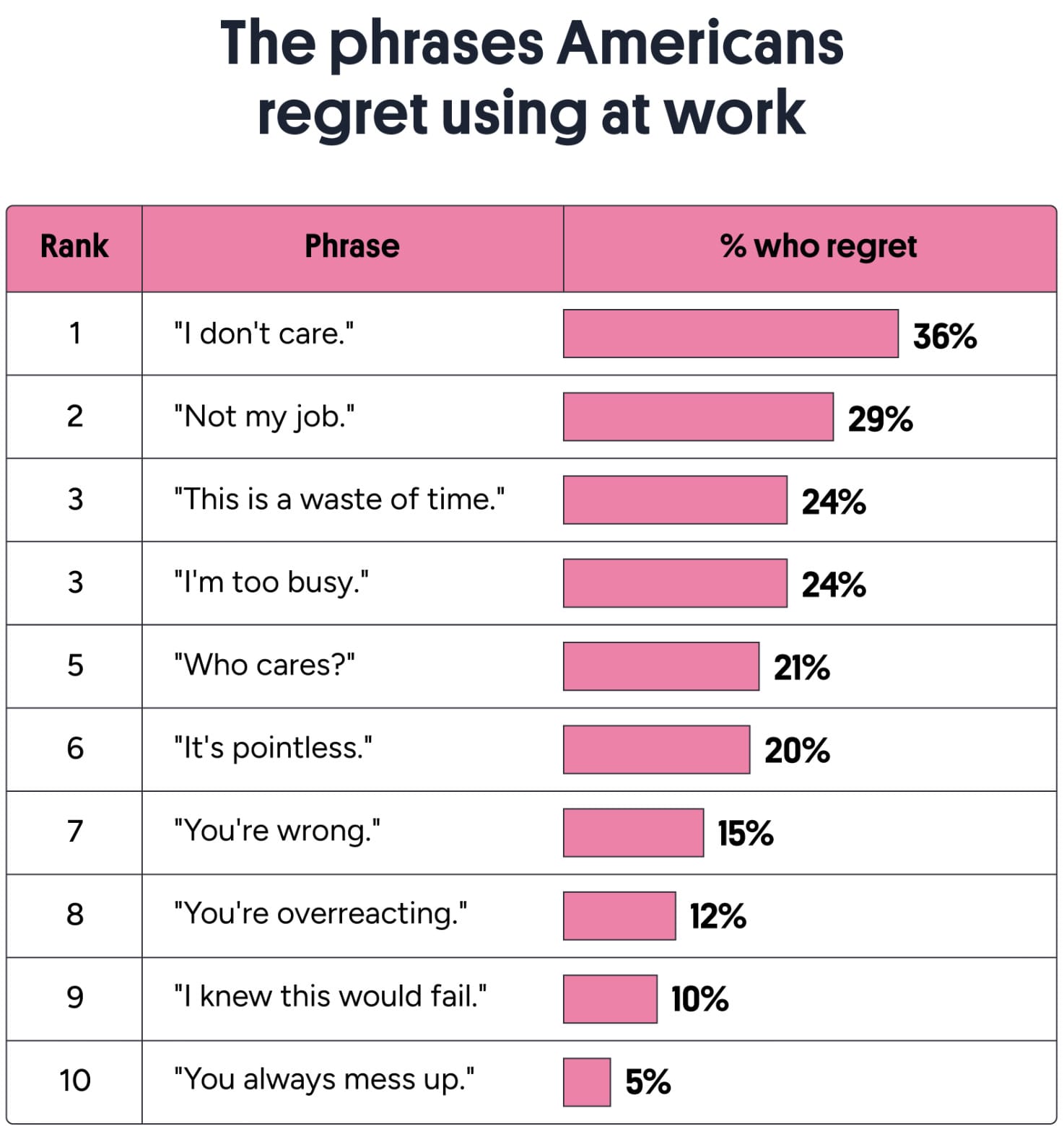Stress is an inevitable part of life, shaping and influencing our every decision, emotion, and action, including the way we communicate. It may induce the silent treatment or cause an emotional outburst, both of which can cause future regret. It may cause people to say a phrase they regret saying at work.
HEALTHCARE NEWS: Who’s Who in Arizona Healthcare for 2024
Preply surveyed Americans to uncover common trends in how we communicate in stressful situations. In this post, we explore the undeniable link between specific words and stress responses and provide actionable advice to harness language as a tool for better communication when tensions rise.
Key findings
- The majority (80%) of Americans say their tone becomes more hurtful when stressed.
- When stress levels rise, 87% confess to using language they later regret.
- “I don’t care” is the #1 phrase Americans regret saying at work.
- A notable 76% say stressed communication has hurt their personal relationships.
- “I have some bad news” (65%) is the #1 phrase Americans feel triggered by.
Stress warps our words
An overwhelming 93% of Americans find that stress negatively impacts their words. Over 4 in 5 admit to having made hurtful remarks impulsively under stress and 87% of Americans confess to using language during stressful times that they later wish they hadn’t.
On the flip side, two-thirds of people report that stress causes them to speak less or even shut down entirely. It’s a defense mechanism, where individuals retreat into silence under pressure.

“I don’t care” is the #1 regretted phrase at work
When it comes to workplace communication, certain phrases uttered in moments of stress stand out for their regrettable impact. Topping the list is “I don’t care,” a phrase 36% of Americans regret saying in a professional setting.
Following closely are other stress-induced remarks such as, “Not my job,” and, “This is a waste of time,” regretted by 29% and 24% of the workforce, respectively. These statements, while perhaps truthful in the moment, can emit a vibe of uncooperativeness or disinterest in teamwork, painting the speaker in a less-than-favorable light.
The repercussions of such stressed-driven words are significant. Over two-fifths of employees acknowledge that their words, under stress, have sparked misunderstandings or conflicts in the workplace. This phenomenon is slightly more prevalent among men, with 47% admitting their words caused misunderstandings compared to 41% of women.
Generational differences also play a role in this dynamic. Boomers (46%) are most likely to find their words leading to conflict, followed in close succession by Gen X at 45%, millennials at 44%, and Gen Z at 39%.



